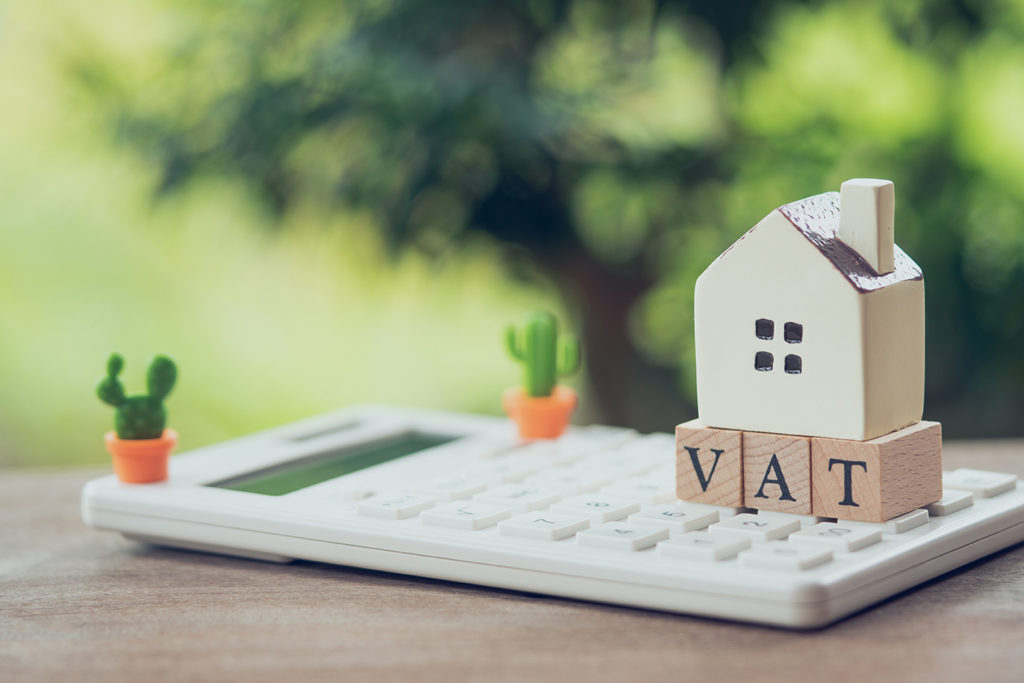It is important for businesses across a wide variety of industries to understand the UK’s value added tax (VAT) system. While many countries around the world now have VAT systems, the UK’s features a number of different entitlements, rates and exemptions that may make understanding it in full somewhat difficult. Still, it is necessary for businesses and property owners to educate themselves on the topic in order to make the proper decisions.
What Is VAT?
VAT is a type of tax that a business charges on its sales and then recovers on its purchases. It also may apply when a property is sold or leased. VAT was first introduced in the UK in 1973 and accounts for approximately 17 per cent of the government’s revenue.
In the UK, there are three different rates that pertain to VAT, including:
- Twenty per cent – This is the standard rate and applies to most goods and services sold by businesses unless otherwise specified within certain legislation.
- Five per cent – This reduced rate applies to certain goods and services, such as the sale of fuel and power.
- Zero per cent – Under this rate, certain businesses are able to not charge VAT on sales, but can still recoup funds on purchases.
For more information regarding Property Insurance, please click here
Commercial Properties
VAT pertaining to the purchasing or leasing of commercial property is generally a complicated subject.
In most cases, the sale or lease of such a property is exempt from VAT. As such, neither party involved in the transaction would need to pay the tax. While this provides financial relief for the purchaser or renter, it means that landlords will not be able to recover any of their costs. There are also a number of exceptions to this rule—such as for new properties. The purchase of commercial buildings that are under 3 years old will include the standard VAT rate.
Even in cases where exemptions can apply, landlords have the right to choose to charge VAT even though they are not required to. This type of decision may stem from a situation in which a property has been recently renovated or improved. The landlord may elect to implement VAT in order to recoup some of the related costs.
If commercial property owners choose to charge VAT at the standard 20 per cent rate, they must do so on all supplies related to that property. Similarly, they are then able to recover VAT charged to them on costs related to the property, such as repairs, utilities and cleaning.
Property owners who choose to charge VAT should notify the HMRC within 30 days. Before making such a decision, owners should be aware that this decision generally cannot be reversed for 20 years. That being said, the decision is tied to the owner as opposed to the property. As such, if the property is sold, the new owner can make their own decision.
When a commercial property changes owners and is operating as a property rental business with existing tenants or leases, the transaction may be classified as a Transfer of Going Concern (TOGC). In these situations, if the new property owner plans to maintain the same type of business, no VAT will be charged for the sale. For TOGC benefits to be applicable to the transaction, the new property owner must implement the same position on VAT—such as whether to charge tenants—by the date of transfer.
Residential Properties
Like commercial spaces, there are a number of different nuances and factors to consider when applying VAT to the sale or renting of residential properties.
A majority of residential landlords and sellers do not have to consider much when it comes to VAT due to lettings being exempt. Selling or renting an existing house or flat will not involve either party charging or recouping any funds related to VAT.
For newly constructed residential properties, original owners can recover costs related to construction, unless a third-party builder was used. Because the third party will not have charged the property owner for VAT, the owners will not be able to recover those funds. In those situations, owners can still recover costs related to other expenses, such as architectural work.
New residential properties that are let by the owners rather than sold are not subject to VAT. As such, landlords should be aware that if they originally planned to sell a property and collected VAT, but then decide to let it, they may be required to return some of those recovered funds.
Holiday property owners should be aware that their lets are subject to VAT. These types of properties are charged at the standard VAT rate. Serviced residential accommodations are considered holiday accommodations, and are therefore also subject to VAT.
The implementation of VAT may be particularly complicated for properties that have been converted for residential purposes. Certain aspects of the conversion may apply to the standard VAT rate, while others may be completely exempt. Furthermore, there may also be some parts of the process to which the reduced 5 per cent rate applies. Due to the complexity of these situations, many contractors may simply choose to charge at the standard rate for all parts of their projects. Property owners may wish to consider acquiring the services of a qualified VAT adviser in these situations in order to attempt to convince their contractors to charge differently.
In Conclusion
There are many different aspects of the UK’s VAT system. Understanding how residential and commercial properties are treated—as well as the various exemptions and choices available to landlords in certain situations—can be a difficult task. But, in order to maximise revenue and facilitate successful transactions, it is necessary for all parties involved to be educated on the subject.


